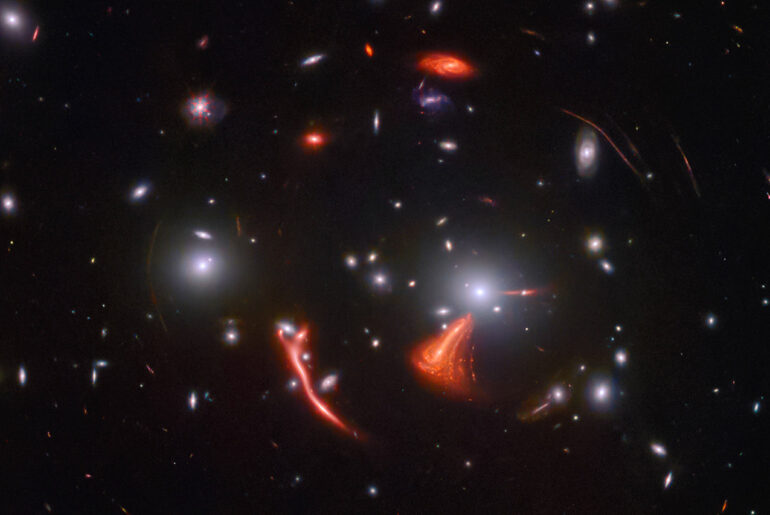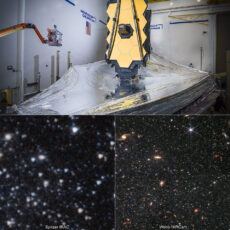
NASA’s James Webb Space Telescope recently captured a galactic seahorse, classified as galaxy cluster SDSS J1226+2149, that has been distorted by gravitational lensing. This phenomenon occurs when there is a massive celestial object, like a galaxy cluster, that causes a sufficient curvature of spacetime for light to be visibly bent around it, as if by a massive lens.
This particular galaxy cluster lies at a distance of approximately 6.3 billion light-years from Earth, in the constellation Coma Berenices. If you combine Webb’s sensitivity with the magnifying effect of gravitational lensing, astronomers can utilize this gravitational lens to study the earliest stages of star formation in distant galaxies.
- High-Quality Optics: The astronomical telescope features 500mm(f/7.1) focal length and 70mm aperture, provides stunning views and protects your eyes.
- High Magnification: Our durable telescope for kids and adults is quipped with two excellent-quality eyepieces (25mm and 10mm) and a 3x Barlow lens.it...
- Portable and Convenient: Telescope comes with a phone adapter and an adjustable aluminum tripod. Wireless remote control and carrying case for...

This image shows only one observation from a programme designed to probe star formation in distant galaxies. As well as revealing how quickly stars form and characterizing the environments in these galaxies that gave rise to new stars, these observations will demonstrate the capabilities of Webb and provide richly detailed datasets to the astronomical community,” said the European Space Angecy.





